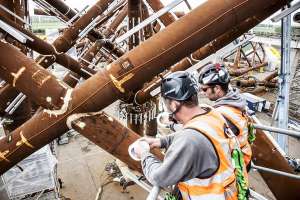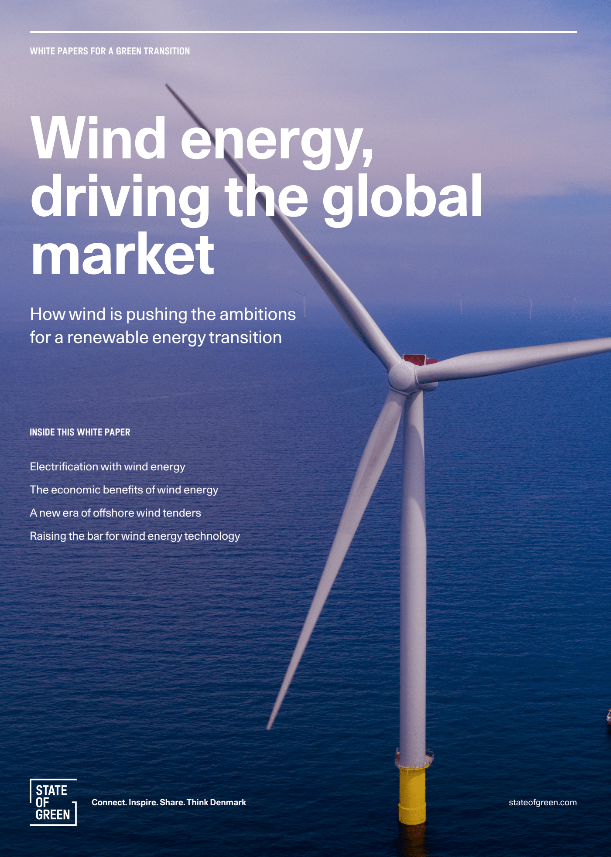Download our publication on wind energy today
This article is part of our publication ‘Wind energy’.
Download nowPerspective
Wind energy
Wind farm planning and development
Wind turbine manufacturing and components


Denmark is home to some of the world’s leading wind turbine manufacturers and suppliers. In total, some 500 companies working in all areas of the wind industry are based in Denmark, creating a globally unique supply chain and close-knit network of competences and services. However, what makes the wind industry in Denmark stand out is not only the ability to innovate and bring down costs, but also the industry’s unique ability to do this through cooperation and partnerships across the entire value chain.
Throughout the years, companies in the wind industry have developed a strong tradition of working together and pooling the knowledge and know-how needed to find new and improved solutions that deliver further reductions to the cost of wind energy.
Just within the peninsula of Jutland, hundreds of wind energy companies work in close proximity to each other. Collaboration across a flexible and cost-efficient value chain rely on shared confidentiality, knowledge sharing and working to push the industry forward together. It is also the close collaboration between the academic community, public authorities and the industry that has prepared the ground for great advancements within research, innovation, test, and demonstration.
In recent years, the wind industry has experienced a high level of consolidation and bundling of products. The latter meaning that Danish suppliers are teaming up to pool services and products into actual systems. Companies can strengthen their strategic position by delivering complete system or packaged solutions to top supply chain players such as turbine manufacturers or wind farm owners. This entails an even closer cooperation across the Danish value chain.
The wind sector has adopted many standards and best practices from other sectors. In recent years, the matter of standardisation in the wind industry has taken a big leap forward in Denmark, and companies and business organisations are coming together to form standards that are designed pecifically for application within the wind industry. In adhering to common standards, suppliers need fewer manufacturing and quality controlling processes, leading to fewer product failures. Standardisation can be applied to numerous areas within the wind industry and the development and deployment of standards is expected to increase in the coming years, underlining the importance of a close collaboration across the value chain.

This article is part of our publication ‘Wind energy’.
Download now